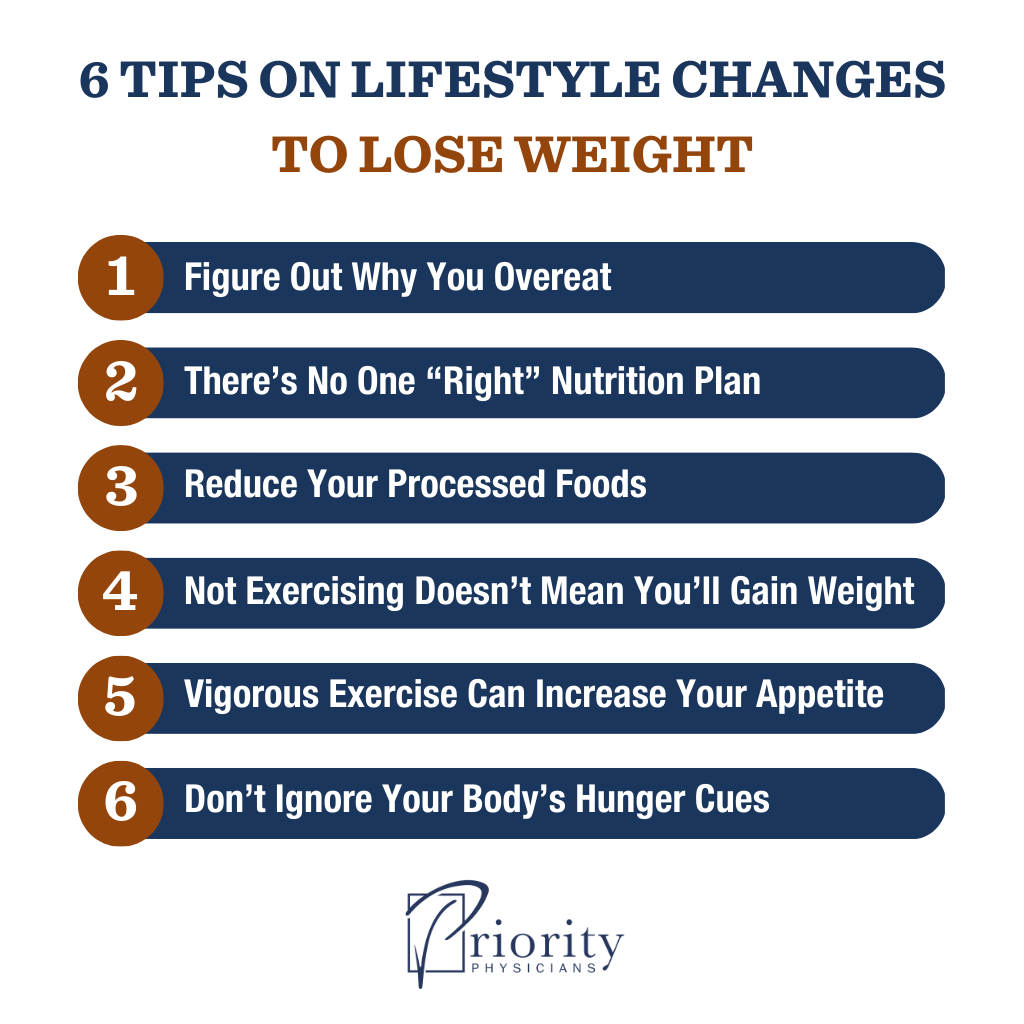The biggest misconception people have about losing weight is that they just won’t be successful at it.
Everyone has preconceived notions as to why losing weight will be hard. Most of the time, these aren’t true. Yes, you will face obstacles when you make lifestyle changes to lose weight. Yes, there will be days when you won’t follow your plan, or when you’ll gain weight. But that doesn’t mean you’ll never enjoy long-term success.
There’s so much shame plaguing the weight loss conversation. The more you dwell on the obstacles and the hard days, the harder losing weight will be. But if you look at these obstacles as learning opportunities, you’ll be able to stay on track with your weight loss plan — even if you’re having a “bad” day.
I really think that the kinder you can be to yourself throughout your weight loss journey, the more successful that journey will be. And when the journey gets tough, I encourage you to move past that shame-based thinking by revisiting your reasons for losing weight in the first place.
If you’re ready to start a positive, empowering weight loss experience, read below for some tips I regularly share with patients. You can do this!

6 Tips on Lifestyle Changes to Lose Weight
Before I share my tips, it’s important to note that there is no one weight loss plan that’s right for everyone.
While the tips below are general guidelines, it’s very important that you discuss your individual situation with your doctor or dietician, especially if you have a history of an eating disorder. Consult a trusted professional before making any major lifestyle changes to lose weight, and really take their advice to heart.
1. Figure Out Why You Overeat
Overeating is rarely just about food. It’s also about your mindset.
In our culture, we use food for many things. We eat to celebrate. We eat because others are eating. We eat to buffer our emotions — sadness, happiness, boredom.
We also eat because we feel guilty about “wasting” food. Let me be the first to tell you — it’s okay to throw food away. It’s better to waste it in the trash than in your body.
Find other coping skills to handle your emotions, and eating won’t be as big of a problem. If you can really dig in to the emotional and mental reasons you overeat, you’ll be able to start a healthy lifestyle and stick to it.
2. There’s No One ‘Right’ Nutrition Plan
Any plan that includes some kind of reduction in food intake will help you lose weight, period. So, the best nutrition plan is one you enjoy, and one you’re able to stick with. It doesn’t matter to me whether that plan is keto, vegetarian, or something else entirely. The best one is the one that’s sustainable for you.
If making a certain lifestyle change to lose weight sounds like torture to you, you’re not going to stick with it long term. So let’s come up with a plan that sounds more appealing to you to keep you from “yo-yo dieting,” or falling back into old habits.
3. Reduce Your Processed Foods
Processed foods are pretty much any foods with added sugar, even ones that seem healthy, like crackers and protein bars.
Some people will go full keto — a diet that’s high in healthy fats, adequate in protein, and low in carbs. But then they’ll eat a bunch of prepackaged, processed foods that fit within the keto plan, which isn’t the best choice nutritionally.
If you replace regular bread with keto-friendly bread, you probably won’t see the long-term results you want. Take out the processed foods and stick with more natural options.
If you want to limit your processed food intake, you’re better off eating fruits to get the appropriate amount of carbohydrates — especially berries. Fruits have simple carbohydrates for energy, but they also have fiber, vitamins, and minerals that are better for your body than a bunch of added sugars.
When it comes to other sources of carbohydrates, the less processed, the better. Stick to whole grains, like brown rice, quinoa, and steel-cut oats.
4. Not Exercising Doesn’t Mean You’ll Gain Weight
Exercise is one of the best things you can do for your health. But if you’re unable to exercise for whatever reason, don’t be discouraged. This period of inactivity doesn’t have to lead to weight gain.
Some of my patients get frustrated when they get injured or face other circumstances that hinder their ability to work out. They think they’ll gain weight just because they’re unable to exercise like normal.
That’s not necessarily true. There’s nothing to be ashamed of if a regimented workout plan or fitness class is out of reach for you at the moment.
If weight loss is your main goal, but you’re burning fewer calories throughout the day, you’ll just need to consume less food during that time.
5. Vigorous Exercise Can Increase Your Appetite
While exercise can be a helpful tool, especially for weight maintenance, some people see an increase in their appetite after vigorous exercise, and they want to eat more. This can make the weight loss journey more difficult.
Cutting back calories to lose weight while also exercising intensely can make you feel depleted.
For example, marathon training or intense strength training can make you constantly hungry. You may feel better doing more mild to moderate exercise, like walking or yoga, while you focus on dietary changes to lose weight.
These changes in exercise don’t have to be permanent. You can always add that higher intensity training back into your routine once you’re closer to your weight loss goal.
6. Don’t Ignore Your Body’s Hunger Cues
Sometimes, we lose track of our own hunger signals. We eat because of what time it is without recognizing whether we’re actually hungry.
A lot of my patients have bought into the idea that breakfast is the most important meal of the day, which at this point has been disproven. If you’re not hungry for breakfast, don’t eat breakfast. It’s that simple. Instead, observe time-restricted eating, where you limit your caloric intake to maybe eight hours out of the day — the hours you actually feel hungry.
It’s also important to stop eating before you feel really stuffed. Recognizing when you’re comfortably full is a great first step to curb an overeating habit.
Helpful Resources
You don’t have to embark on your weight loss journey alone! Your doctor or dietician is more than willing to help you make sustainable lifestyle changes to lose weight.
If you’d like additional perspectives on how to start a healthy lifestyle and stick to it, I recommend the following resources:
Books:
Podcast Episodes:
I hope I’ve given you a great place to start. It may sound cheesy, but no matter what your circumstance is, I truly believe you can achieve your weight loss goals.

